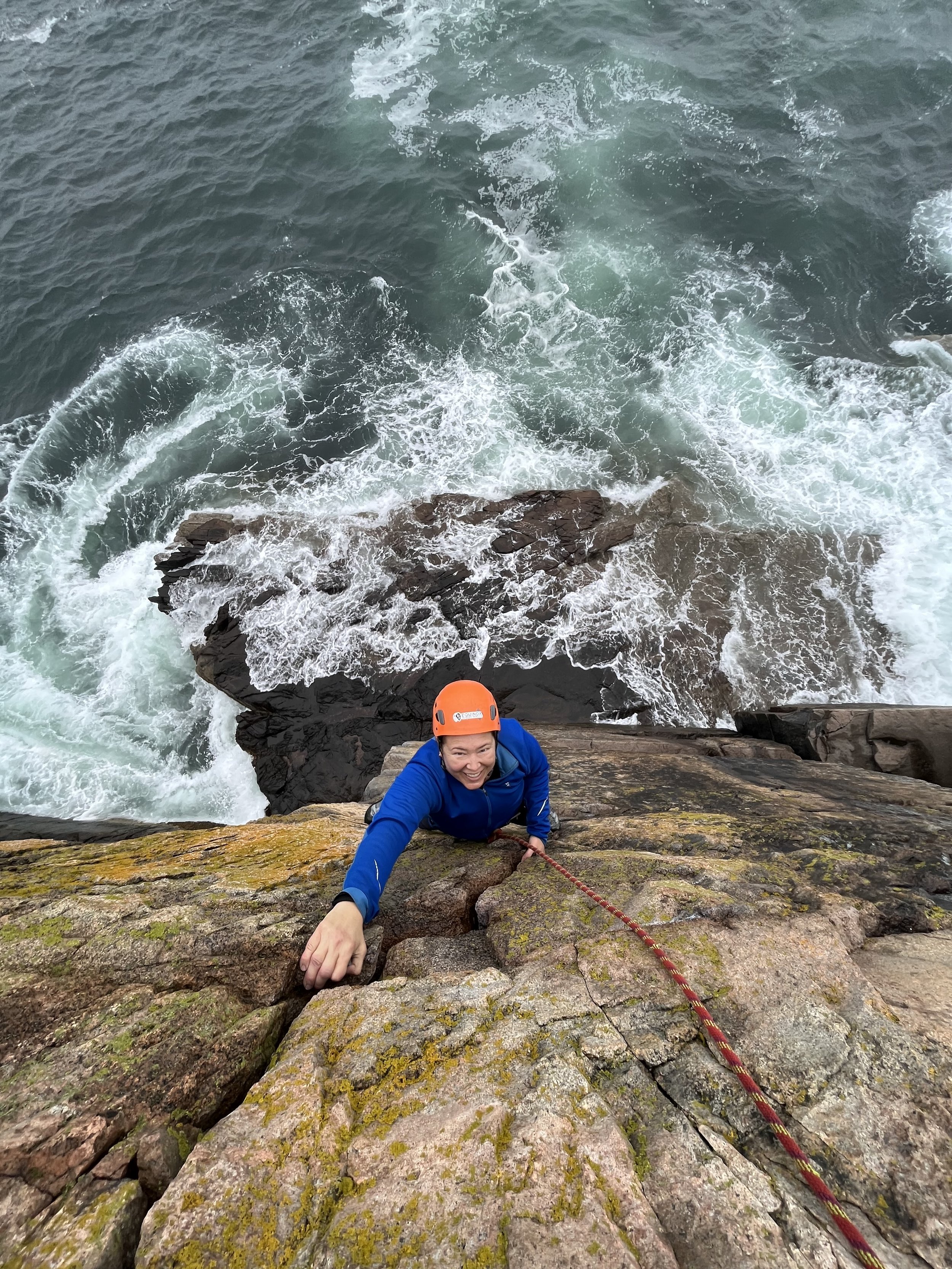Trust in Rock Climbing: A Fundamental Bond Between Climber and Gear
Rock climbing is a thrilling and challenging sport that demands physical strength, mental focus, and a deep sense of trust. Whether you're scaling an indoor climbing wall or tackling a towering natural rock formation, trust is at the core of every successful climb. In this blog post, we will delve into the multifaceted aspects of trust in rock climbing, examining the relationships between climbers and their gear, their climbing partners, and themselves.
Trust in Your Gear
When you're hanging hundreds of feet above the ground, suspended only by ropes, harnesses, and carabiners, the trust you place in your climbing equipment is paramount. Climbing gear, if properly maintained and used, is designed to keep you safe, but the critical element is your belief in its reliability.
a. Ropes
The rope is the lifeline of a climber. Trusting it is not only about its strength but also its condition. Before every climb, climbers carefully inspect their ropes for any signs of wear and tear. Frayed spots, cuts, or abrasions can be the difference between a safe descent and a catastrophe.
Modern climbing ropes are meticulously engineered to absorb shock and distribute forces evenly during falls. Knowing that your rope can handle the strain of a fall and protect you is a fundamental trust bond in climbing.
b. Harnesses and Helmets
Your climbing harness is what keeps you attached to the rope and the wall. Trusting its construction and integrity is non-negotiable. Harnesses are designed to withstand enormous forces and are fitted to each climber's body, ensuring a snug, secure fit.
Helmets, while often overlooked by beginners, are another critical piece of safety equipment. They protect your head from falling debris, accidental impacts with the wall, or even unexpected falls. Trusting your helmet is an acknowledgment of the importance of protecting your most valuable asset—your brain.
c. Carabiners and Anchors
Carabiners and anchors are the unsung heroes of climbing gear. Carabiners must be checked for any deformities or signs of stress, ensuring that they will securely hold your weight when you need them most. Anchors are the fixed points in the rock where your rope is secured. Trusting anchors means that you believe they have been set correctly and can withstand the force of a fall.
Trust in Your Climbing Partner
While trust in gear is crucial, trust in your climbing partner is equally significant, if not more so. Climbing is often a team sport, and the bonds of trust formed between partners can be the difference between success and disaster.
a. Communication
Effective communication is essential when climbing with a partner. Trusting that your partner will provide clear instructions, relay important information, and understand your signals is vital. A breakdown in communication can lead to confusion, hesitation, and potentially dangerous situations.
b. Belaying
Belaying is the act of controlling the rope to protect the climber in case of a fall. Trust in your belayer is fundamental to your safety. Belayers must be attentive, focused, and skilled in the art of managing the rope. Climbers trust their belayers with their lives, relying on them to arrest any falls swiftly and smoothly.
c. Spotting
In bouldering, where climbers tackle shorter but often more challenging routes without ropes, trust in your spotter is paramount. A spotter's role is to protect the climber from falls by guiding their descent and cushioning potential impacts. A high level of trust is required between climber and spotter to ensure a safe landing.
Trust in Yourself
Climbing often pushes individuals beyond their comfort zones, both physically and mentally. Self-trust is the foundation upon which climbers build their skills and tackle increasingly difficult routes.
a. Physical Trust
Climbing demands a high degree of physical trust in your own abilities. Trusting that your body can perform the movements, maintain balance, and generate the necessary strength is crucial. Climbers often practice specific techniques, build strength, and hone their skills to enhance their physical trust.
b. Mental Trust
The mental aspect of climbing is just as important as the physical. Trusting your mental resilience and ability to stay calm under pressure is essential. When faced with challenging routes or exposed situations, self-trust enables climbers to overcome fear, doubt, and anxiety.
c. Trust in Your Training
Climbers put in countless hours of training to develop the skills needed for different types of climbs. Trust in your training means that you have confidence in your ability to make sound decisions, evaluate risks, and adapt to changing situations. Training builds competence and competence builds trust.
In rock climbing, trust permeates every facet of the sport. Trust in your gear, climbing partner, and yourself is what allows climbers to push their limits, explore new heights, and experience the unparalleled joy of reaching the summit. This trust is not blind; it is earned through rigorous training, careful preparation, and experience.
As climbers, we understand that trust is not static but a dynamic force that can be strengthened through knowledge, practice, and a deep respect for the inherent risks of the sport. Ultimately, trust is the invisible thread that binds climbers to the rock and to each other, creating an unbreakable connection that makes every climb an unforgettable journey of discovery and triumph.


